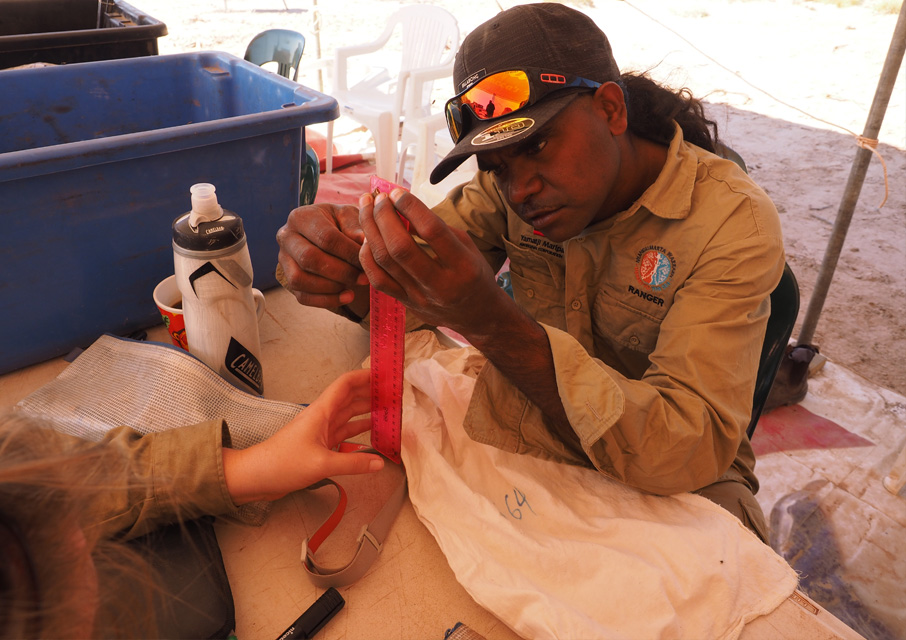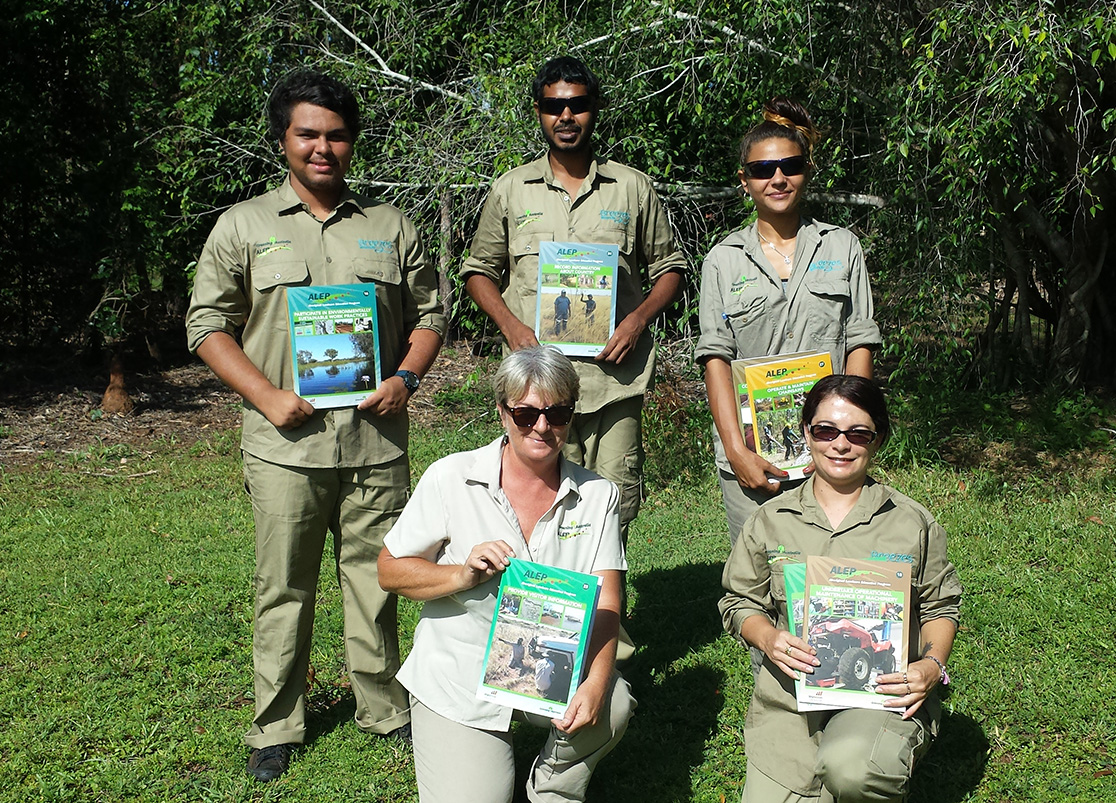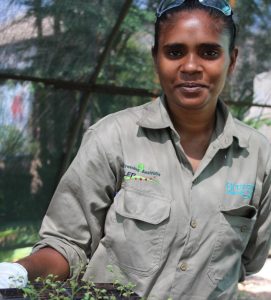ALEP has combined classroom-based learning and practical projects to help students develop skills and gain work experience in conservation, nursery and landscaping-related industries.
ALEP has engaged almost 500 Aboriginal people and remote communities throughout the Pilbara and Darwin, enhancing environmental skills and improving employment opportunities.
In the Northern Territory, young people who were previously disengaged from the community, often with low numeracy and literacy skills, flourished in ALEP’s team environment. In the Pilbara, ALEP enabled local Aboriginal people to engage directly in on-ground conservation activities, enhance their skills and raise their environmental awareness. Over 110 Aboriginal participants from seven different Indigenous groups have undertaken training relevant to ranger activities on country.
The broad range of projects successfully carried out with remote Aboriginal communities include:
- Worked with families in remote NT and WA communities to create healthier living environments in their yards for improved environmental amenity and health.
- Improved amenity in community areas such as public parks and gardens, including assisting locals with the Daguragu Hand Over Park in the NT for the 40 Years of Freedom Day Festival.
- Landscaped and enhanced safe places with the NT Emergency Response Supporting Families program, working with 13 Northern Territory communities.
- Engaged young Aboriginal people in the NT in community-based projects with the help of Grinwan Geing (working mainly with young adults) and Lilwan Geing (working with children), as part of ALEP Green Cadets.
- Supported seed collection activities for the Women’s Ranger Group at Parngurr, and provided commercial opportunities for sale to Nindethana Seed Company.
- Complemented the traditional skills of the Ngurrawaana rangers and enabled them to conserve biodiversity through training focused on monitoring and managing rivers on the Leramugadu Lease within the Fortescue Catchment.
- Collaborated with the Department of Parks and Wildlife and the Nyangumarta Rangers to undertake fauna surveys at a Ramsar-listed Wetland at Eighty Mile Beach, providing hands-on experience to complement their Conservation and Land Management studies.






 Jasmine was a receptionist at the local doctor’s surgery in Daly River. She moved to Darwin to help her sister. Having always wanted to work on country, Jasmine saw the ads for the ALEP program and enrolled. She built her confidence through the training and is now working on her father’s country as the first female ranger at Fish River, a pastoral station that has since been purchased for conservation and now forms part of the National Strategic Reserve.
Jasmine was a receptionist at the local doctor’s surgery in Daly River. She moved to Darwin to help her sister. Having always wanted to work on country, Jasmine saw the ads for the ALEP program and enrolled. She built her confidence through the training and is now working on her father’s country as the first female ranger at Fish River, a pastoral station that has since been purchased for conservation and now forms part of the National Strategic Reserve.